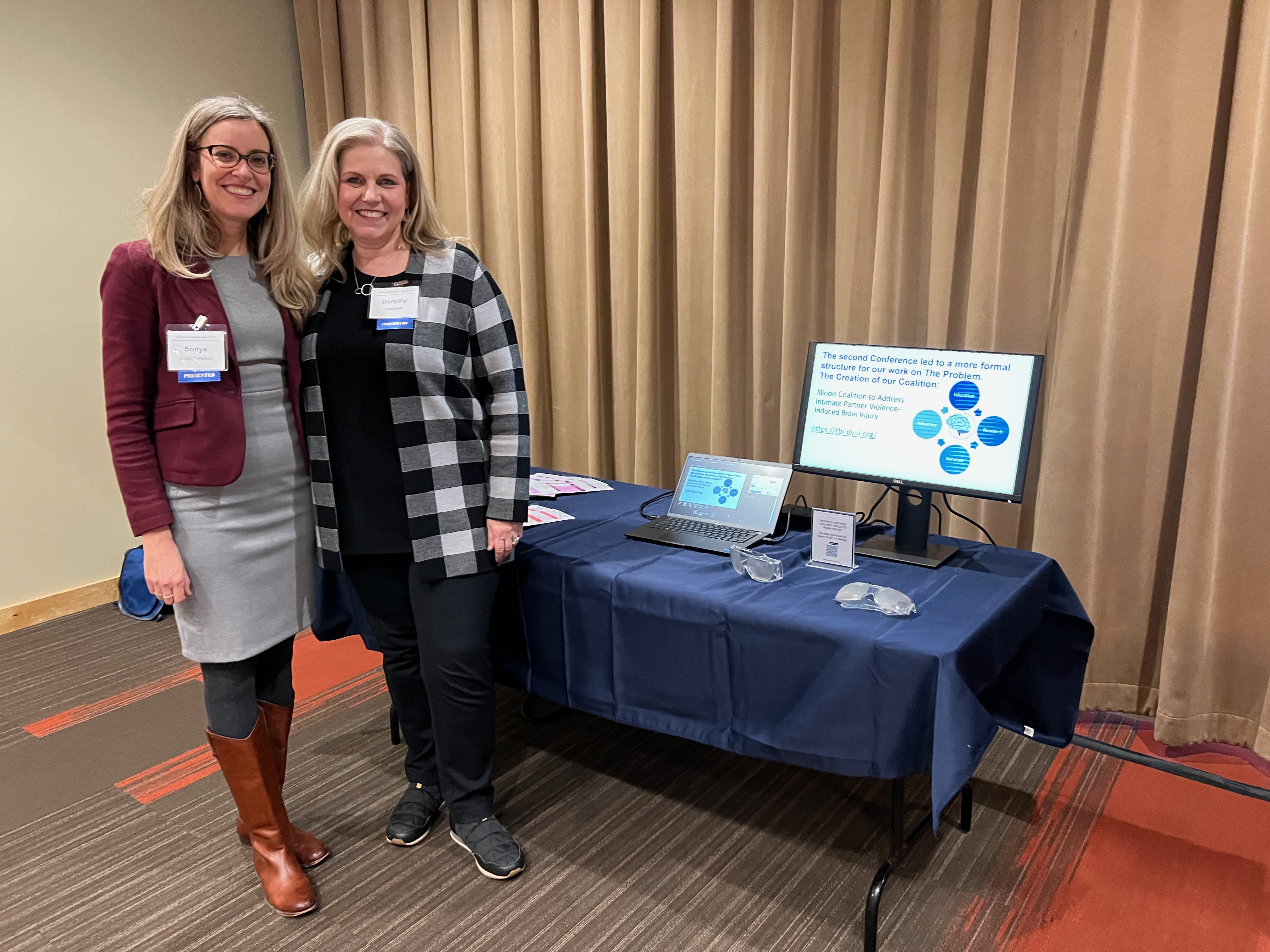 Dorothy Kozlowski and Sonya Crabtree-Nelson aim to improve support systems for domestic violence survivors through their research. (Provided photo)
Dorothy Kozlowski and Sonya Crabtree-Nelson aim to improve support systems for domestic violence survivors through their research. (Provided photo)Over 1 in 3 women and 1 in 4 men in the United States
have experienced domestic violence in their lifetime. This impact is wide-ranging, and recent years have seen an increase in research on the public health effects of domestic violence. A $60,000 grant from the Michael Reese Health Trust is supporting DePaul faculty in highlighting an issue that has historically been under-researched: brain injury in domestic violence situations.
Inspired by a colleague’s work with victims of domestic violence, Dorothy Kozlowski, a Vincent de Paul Professor of Neuroscience and Chair of DePaul's Department of Neuroscience, began a collaboration with Sonya Crabtree-Nelson, an associate professor of social work, over seven years ago aiming to reveal the scope of brain injury related to domestic violence.
“There has historically been very little data on how many individuals experience this,” says Crabtree-Nelson. “When bringing attention and resources to an issue, it’s essential to know the scale of the problem. Gathering data around this issue is something we’ve been trying to do for quite some time so those next steps can take place.”
Upwards of 90% of individuals with a history of interpersonal violence have symptoms of TBI. It was immediately clear that more research was necessary.
The answer came in a collaboration with the Chicago Area Patient-Centered Research Network. CAPriCORN is a network of partnerships between healthcare institutions and those looking to implement clinical research on a large scale, offering access to patient data across the Chicagoland area.
“This project is an excellent example of utilizing data science innovation to better advance health equity and public health,” says Raj Shah, co-director of the Center for Community Health Equity and the Rush site lead for CAPriCORN. “I appreciate the years of work that the faculty at DePaul with community partners have developed to examine this key issue and look forward to all learning together.”
The researcher’s recent grant award is powering this next step throughout Chicago. This next phase will gather data from CAPriCORN sites throughout the city and provide insights to a variety of organizations, including those directly working with survivors of domestic violence like The Network, a community partner on the grant.
“This upcoming research will enable our partners to show the scope of this issue and expand their services,” says Kozlowski. “One of our priorities is enhancing services for survivors. In every step, we consider what our research can do to concretely benefit those who are impacted by domestic violence.”
You can learn more about Kozlowski and Crabtree-Nelson’s work on The Illinois Coalition to Address Intimate Partner Violence-Induced Brain Injury website.